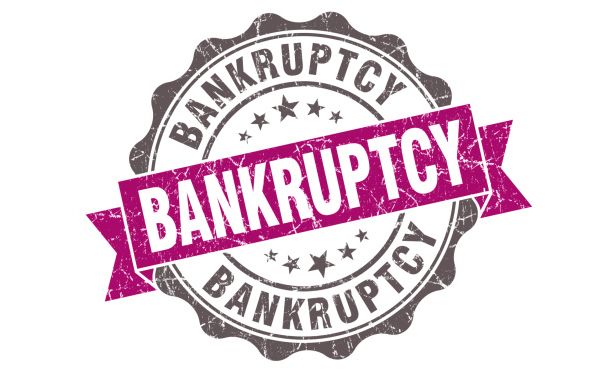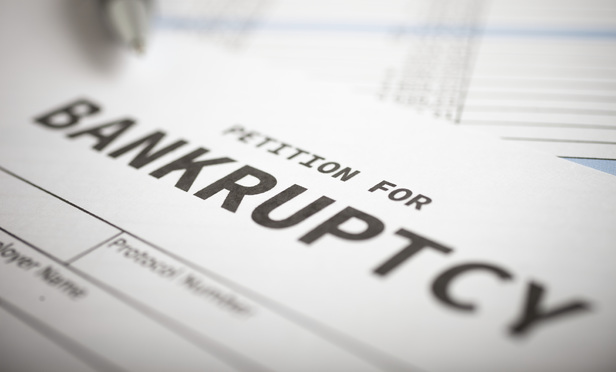Andrew C Kassner And Joseph N Argentina Jr

April 20, 2017 | The Legal Intelligencer
High Court Addresses Structured Dismissal of Bankruptcy CaseIn bankruptcy practice, courts are often faced with situations where a global solution to the case is presented that benefits most—even substantially all—but not all constituencies. Under these circumstances, lawyers attempt to craft creative solutions to implement such deals. The question arises: do the ends justify the means?
By Andrew C. Kassner and Joseph N. Argentina Jr.
17 minute read

March 06, 2017 | The Legal Intelligencer
Sale That Provides No Recovery for Junior Lienholders ApprovedOne of the most important tools in the debtor's toolbox of rights under the Bankruptcy Code is the ability to seek a sale of assets of the estate that are encumbered by liens, and deliver title free and clear of such liens.
By Andrew C. Kassner and Joseph N. Argentina Jr.
17 minute read

January 13, 2017 | The Legal Intelligencer
Ninth Circuit Reviews Claims Against Creditor Committee ChairOne of the interesting and often misunderstood roles in a bankruptcy case is the appointment and participation of official committees, most often the official committee of unsecured creditors. The creditors' committee is appointed by the Office of the U.S. Trustee at the outset of the bankruptcy case. Participation on the committee is a voluntary and unpaid position. The committee is usually of a size between three and seven members picked from the largest 20 unsecured creditors. The committee elects a member to act as chair. The role of the committee is to act as a representative of the entire unsecured creditor body by, including but not limited to investigating matters relevant to the debtor's financial condition, operations and formulation of a plan of reorganization, and participating in the formation of a plan. Committee members by definition hold their own individual claims against the debtor, but as committee members they are supposed to act in the interest of all creditors.
By Andrew C. Kassner and Joseph N. Argentina Jr.
14 minute read

December 02, 2016 | The Legal Intelligencer
Developer Authorized to Reject Settlement Deal with HOAOne of the powerful tools vailable to a debtor in bankruptcy is the ability to review existing pre-bankruptcy contracts and determine which contracts should be assumed or rejected. Any party can breach its obligations under a contract; however, in bankruptcy, when a debtor decides to reject—meaning breach the contract, the damages in most cases can be treated like any other unsecured claim and be discharged along with all other pre-bankruptcy claims. Of course, it is often not that simple. Section 365 of the Bankruptcy Code, the provision that addresses executory contracts, is one of the most lengthy and complex provisions of the Bankruptcy Code. Often, the court must first determine if the contract is "executory." In a recent decision of the U.S. Bankruptcy Court for the District of New Mexico, the court was asked to determine whether a state court settlement agreement between the debtor and a homeowner's association was rejected in the debtor's bankruptcy case, and the consequences of rejection. In a decision issued in In re Spoverlook, dated Oct. 7, the court rejected the argument advanced by the homeowner's association that rejection would violate a state court order, and approved rejection of the settlement agreement.
By Andrew C. Kassner and Joseph N. Argentina Jr.
15 minute read

August 30, 2016 | The Legal Intelligencer
Bankruptcy Court Determines That Education Has ValueThe end of August means two things to many parents—the annual family vacation and the semi-annual ritual of writing those large tuition checks to the college of their children's choice. As many of us load our cars with our children's random belongings and drive them to school, today we report on an interesting decision issued on Aug. 10, by U.S. Bankruptcy Judge Melvin S. Hoffman of the District of Massachusetts.
By Andrew C. Kassner and Joseph N. Argentina Jr.
12 minute read

July 18, 2016 | The Legal Intelligencer
Creditors Lose Standing to Pursue Debtor's Shareholders, DirectorsOne of the policies behind the bankruptcy process is bringing disputes regarding the debtor into one forum to avoid piecemeal litigation and dismemberment of the debtor's business and assets. For this reason, the Bankruptcy Code provides the bankruptcy trustee with the power to bring actions on behalf of creditors against third parties, the proceeds of which are returned to the bankruptcy estate for distribution to all creditors in order of priority.
By Andrew C. Kassner and Joseph N. Argentina Jr.
13 minute read

June 03, 2016 | The Legal Intelligencer
Private Equity Funds Liable for Pension Withdrawal LiabilitiesWe have been reporting on key developments in the restructuring and bankruptcy area for almost six years. When our reported case decisions involve a remand from the appellate courts, we follow them to conclusion.
By Andrew C. Kassner and Joseph N. Argentina Jr.
10 minute read

April 15, 2016 | The Legal Intelligencer
Creditor Can Pursue Fraudulent Transfer Claim in Chapter 13 CaseThe court held that creditors could pursue a fraudulent transfer action in state court on behalf of the estate during the pendency of the bankruptcy case to avoid transfers of property by Steven Rosenblum to a friend and his father.
By Andrew C. Kassner and Joseph N. Argentina Jr.
15 minute read

March 04, 2016 | The Legal Intelligencer
Third Circuit Permits Debtors to Trump Rights Under Expired CBAThe interplay between the U.S. Bankruptcy Code and other federal laws often requires the court to balance competing federal policy considerations.
By Andrew C. Kassner and Joseph N. Argentina Jr.
7 minute read

January 15, 2016 | The Legal Intelligencer
Trustee Settlement of SEC Claim Approved Over Creditor ObjectionsOne of the fundamental principles of bankruptcy law is the absolute priority rule, which provides that the proceeds of a bankruptcy estate should be distributed first to creditors in order of priority and, if and when creditors are paid in full, to equity holders. While this appears to be a simple and straightforward legal doctrine, bankruptcy courts often are presented with difficult questions regarding when distributions would violate the rule, such as when creditors agree to "gift" part of their distributions to others under a plan of reorganization.
By Andrew C. Kassner and Joseph N. Argentina Jr.
7 minute read
More from ALM
- Scan In Progress: Litigators Leverage AI to Screen Prospective Jurors 1 minute read
- Legal Speak at General Counsel Conference East 2024: Match Group's Katie Dugan & Herrick's Carol Goodman 1 minute read
- Legal Speak at General Counsel Conference East 2024: Eric Wall, Executive VP, Syllo 1 minute read



